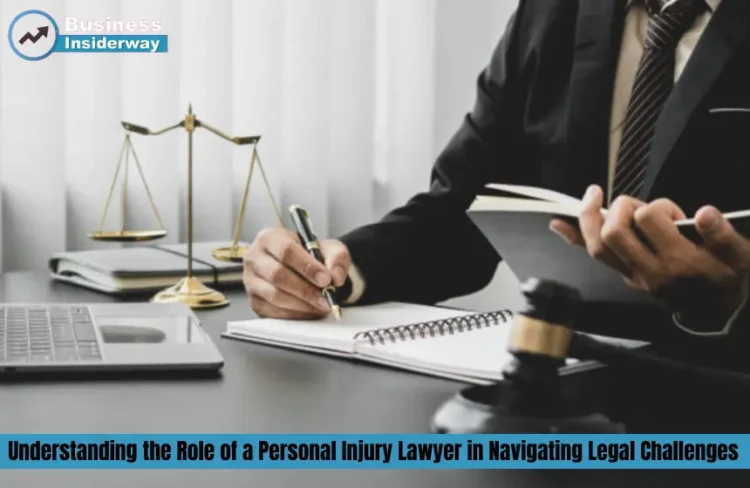Introduction to Personal Injury Law
Personal injury law offers a legal remedy to those harmed physically or emotionally due to another party’s negligence or wrongful act. The purpose of this field of law is twofold: first, to compensate the victim for the loss suffered, and second, to serve as a deterrent to prevent similar offenses in the future. A competent Arkansas personal injury law firm is vital for victims wading through the complexities of the law to secure the justice and compensation they deserve. From accidents on the road to slips and falls, personal injury law encompasses many incidents. Each case requires a dedicated examination of the facts to determine negligence and liability effectively.
When individuals are impacted by personal injuries, their professional and personal lives can quickly become burdened with overwhelming medical expenses, lost wages from time off work, and enduring pain and suffering. The implications of a significant injury can ripple out, affecting families and communities.
When to Seek Representation
Recognizing the right moment to seek legal counsel is key for anyone who has suffered a personal injury. Common scenarios prompting the need for a personal injury attorney include but are not limited to, motor vehicle collisions, medical malpractice, product liability cases, or workplace incidents. One of the most critical aspects to be aware of is the statute of limitations, laws setting the maximum time after an event within which legal proceedings may be initiated. Every state has different regulations, but once the statute has expired, the injured party forfeits the right to sue for damages.
The counsel of a knowledgeable attorney early in the process can significantly impact the outcome of a case. A professional can assist in the accurate valuation of claims, help preserve evidence, and maintain the necessary documentation. Engaging a legal expert immediately helps prevent costly mistakes that individuals may make when unfamiliar with the law. This includes statements given to insurance adjusters that could jeopardize the claim or accepting settlements that undervalue the case.
The Legal Process Explained
The legal journey after a personal injury often starts with a claim – a formal request for compensation from the responsible party’s insurance company. Filing a lawsuit in Arkansas becomes the next step if a fair settlement cannot be reached through the claims process. The process can become increasingly more complex, with paperwork to be filed with the courts, adhering to strict procedural requirements, and embarking on the discovery phase, where evidence is exchanged between parties. This stage hinges on properly documented evidence, from medical records and accident reports to witness testimony. Collecting, organizing, and presenting this evidence is crucial to building a solid case.
Working with a Personal Injury Lawyer
An initial meeting with a personal injury attorney is an opportunity to explore the case’s particulars in-depth. During this consultation, the lawyer will evaluate the claim’s strength and potential value, outline the injured party’s rights, and discuss the strategies to implement moving forward. One of the prime advantages of having legal representation is the expertise in dealing with insurance companies. Often, insurers will offer settlements rapidly, which might not fully cover the extent of damages. Personal injury lawyers have the negotiation skills necessary to work towards more just compensation agreements.
The Importance of Specialization
The diverse world of personal injury law means that attorneys often develop particular focus areas, such as car accident cases, medical malpractice, or workplace injuries. Specialized knowledge and experience relating to specific case types enable lawyers to handle the nuances and complexities unique to each area. Clients benefit from legal representation that understands the intricacies of their specific situations. Researching a prospective lawyer’s background and case history can offer insights into their effectiveness in handling similar cases and lead to an informed decision when selecting legal counsel.
Understanding Damages and Compensation
When deliberating compensation, damages are classified into two main categories: economic and non-economic. Economic damages are quantifiable costs such as medical expenses, loss of earning capacity, and property damage. Non-economic damages, on the other hand, encompass intangibles like pain and suffering, emotional distress, and loss of quality of life. In extraordinary cases where the defendant’s actions are especially harmful, punitive damages may be awarded as punishment and discouragement from future misconduct. Thoroughly calculating the full extent of these damages necessitates financial acumen and often requires the inclusion of expert testimonies.
Overcoming Legal Hurdles
Personal injury cases are fraught with obstacles, from establishing clear-cut liability to negotiating with insurance companies savvy in minimizing payouts. An adept attorney brings to the table their knowledge of legal precedents, the aptitude to represent facts persuasively, and the skill set to counter the strategies employed by defense attorneys. They ensure that essential evidence is admissible, expert witnesses are vetted and prepared, and their client’s narrative is faithfully articulated.
Moving Forward After a Settlement or Verdict
The resolution of a personal injury case does not put an immediate end to the victim’s journey. The settlement or verdict marks a new beginning, with compensation playing a role in the recovery and adjustment to post-injury life. This financial relief can be instrumental in accessing better medical care, providing for lost income, and compensating for enduring challenges. The successful outcome of a case can also deliver a profound sense of justice and closure, allowing individuals to move forward with the reassurance that their grievances have been acknowledged legally and ethically. In this period of recalibration, the guidance of a trustworthy attorney continues to be an invaluable asset.














